Your Essential Guide to Fabricated Storage Tanks
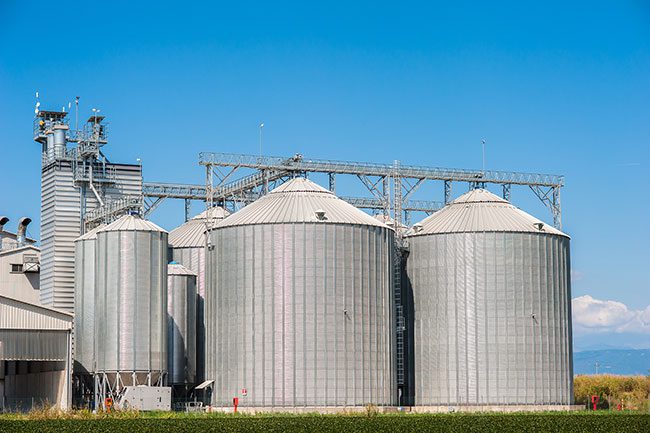
The term “storage tank” has a remarkably broad definition. While it sounds simple enough, a storage tank will vary from person to person and industry to industry. Custom fabricated storage tanks can be designed and built to contain organic liquids, non-organic liquids, vapors, or solids. These custom tanks are specifically designed and built with a customer’s need and usage in mind. Industries where storage tanks can be found are typically industries consuming or producing good, liquids, and or vapors. Industries like petroleum either in producing or manufacturing petroleum, chemical engineering and or manufacturing, and the agriculture industry for bulk storage.
Keep reading for a breakdown of storage tank styles and materials to make them.
Types of Tanks
The use of the storage tank and what it will contain will determine the type of tank required.
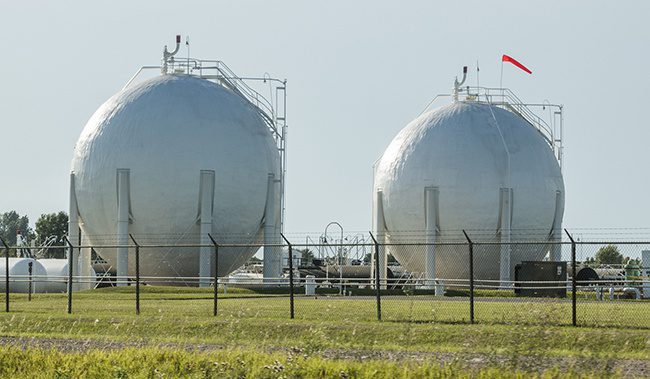 Spherical storage tanks – Spherical storage tanks are mainly used for storage of high-pressure fluids. The curved shape makes spherical tanks very strong. The even distribution of stresses on the sphere’s surfaces, both internally and externally, generally means that there are no weak points. Spheres however, are much more costly to manufacture than cylindrical vessels. An advantage of spherical storage vessels is, that they have a smaller surface area per unit volume than any other shape of vessel.
Spherical storage tanks – Spherical storage tanks are mainly used for storage of high-pressure fluids. The curved shape makes spherical tanks very strong. The even distribution of stresses on the sphere’s surfaces, both internally and externally, generally means that there are no weak points. Spheres however, are much more costly to manufacture than cylindrical vessels. An advantage of spherical storage vessels is, that they have a smaller surface area per unit volume than any other shape of vessel.
This means, that the quantity of heat transferred from warmer surroundings to the liquid in the sphere.
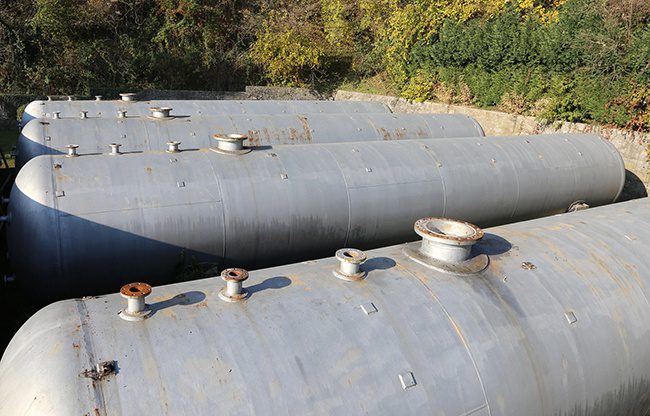
Cylindrical Storage Tanks – Cylinders are widely used for storage due to their being less expensive to produce than spheres. However, cylinders are not as strong as spheres due to the weak point at each end. Hemispherical or rounded ends being fitted reduce this weakness. If the whole cylinder is manufactured from thicker material than a comparable spherical vessel of similar capacity, storage pressure can be similar to that of a sphere.
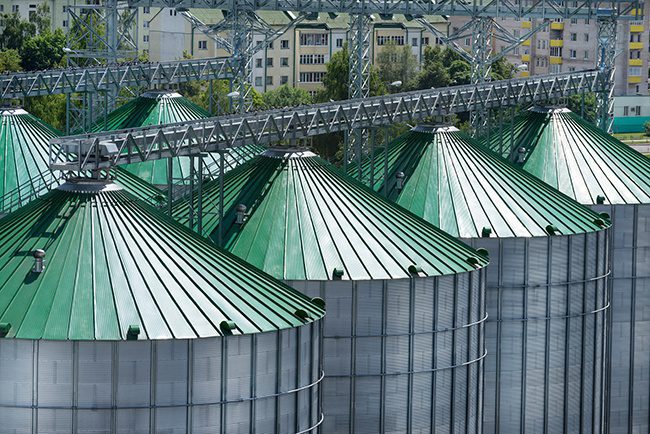 Fixed Roof Storage Tanks – Fixed-roof tanks are usually the least expensive to construct. They are generally considered the minimum acceptable equipment for storing liquids. A typical fixed-roof tank consists of a cylindrical steel shell with a cone- or dome-shaped roof that is permanently affixed to the tank shell. Storage tanks are usually fully welded and designed for both liquid and vapor. A breather valve is often installed on fixed-roof tanks. This allows the tank to operate at a slight internal pressure or vacuum. This valve prevents the release of vapors during only very small changes in temperature, barometric pressure, or liquid level.
Fixed Roof Storage Tanks – Fixed-roof tanks are usually the least expensive to construct. They are generally considered the minimum acceptable equipment for storing liquids. A typical fixed-roof tank consists of a cylindrical steel shell with a cone- or dome-shaped roof that is permanently affixed to the tank shell. Storage tanks are usually fully welded and designed for both liquid and vapor. A breather valve is often installed on fixed-roof tanks. This allows the tank to operate at a slight internal pressure or vacuum. This valve prevents the release of vapors during only very small changes in temperature, barometric pressure, or liquid level.
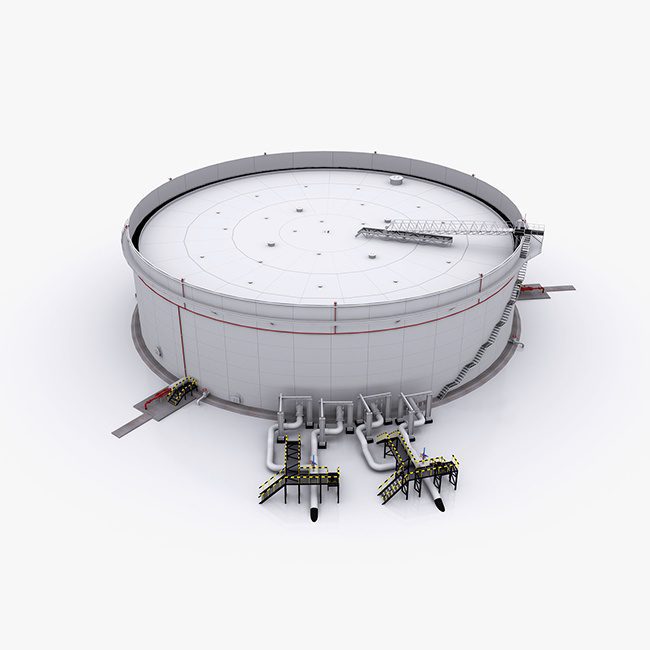 Floating Roof Tanks – Storage tanks with floating roof are mainly used for stores near atmospheric pressure. Floating roofs are designed to move vertically within the frame of the tank to provide a constant minimum gap between product surface and the ceiling and provide a continuous seal between the periphery of the tank and the floating roof. These can be made of a type that is exposed to the environment or a type that is within a fixed roof. The internal floating roof tanks with an external fixed roof are used in areas of heavy snowfall since the accumulation of snow or water affects the operation of buoyancy.
Floating Roof Tanks – Storage tanks with floating roof are mainly used for stores near atmospheric pressure. Floating roofs are designed to move vertically within the frame of the tank to provide a constant minimum gap between product surface and the ceiling and provide a continuous seal between the periphery of the tank and the floating roof. These can be made of a type that is exposed to the environment or a type that is within a fixed roof. The internal floating roof tanks with an external fixed roof are used in areas of heavy snowfall since the accumulation of snow or water affects the operation of buoyancy.
Both tanks, fixed roof or internal floating are used to reduce steam losses and preserve the stored fluid. A typical external floating roof tank consists of an open-topped cylindrical steel shell equipped with a roof that floats on the surface of the stored liquid, rising and falling with the liquid level. External floating roof tanks are equipped with a rim seal system, which is attached to the roof perimeter and contacts the tank wall. The rim seal system slides against the tank wall as the roof is raised and lowered.
Materials of Construction
Storage tanks can be fabricated from several different materials. They type you choose for your tank will depend on how you will use the tank, the material you plan to store and the conditions in which you will store it.
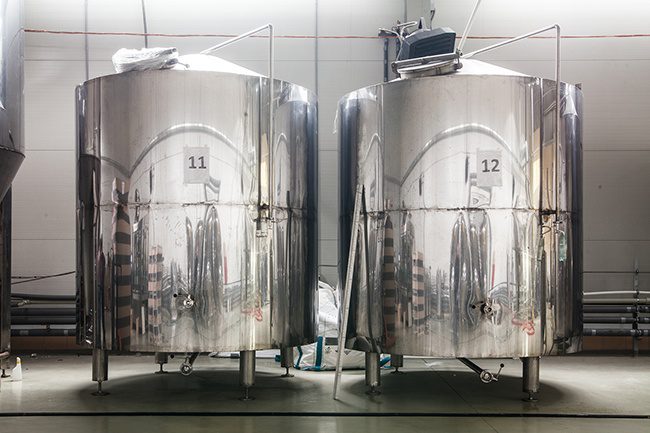 Stainless Steel – Stainless steel is a common option for storage tanks, and with good reason. Welded stainless steel tanks are incredibly durable, as well. Stainless steel offers resistance to corrosion, rust, fire and UV light, which means that these tanks last considerably longer than welded steel or concrete. A welded stainless steel tank is also a leak-free storage solution, meaning you can trust that what you store inside will stay inside. Various linings can be added to the inside of a stainless steel tank to allows for a variety a uses from storing water and food materials to chemical fertilizers and petroleum products.
Stainless Steel – Stainless steel is a common option for storage tanks, and with good reason. Welded stainless steel tanks are incredibly durable, as well. Stainless steel offers resistance to corrosion, rust, fire and UV light, which means that these tanks last considerably longer than welded steel or concrete. A welded stainless steel tank is also a leak-free storage solution, meaning you can trust that what you store inside will stay inside. Various linings can be added to the inside of a stainless steel tank to allows for a variety a uses from storing water and food materials to chemical fertilizers and petroleum products.
Stainless steel also has a long lifespan that makes it quite affordable. The cost of ownership is lower than a concrete or bolted steel tanks. Stainless steel tanks require les maintenance and will last much longer. Additionally, Stainless steel tanks are an eco-friendly storage option. Stainless steel is completely recyclable once a tank is taken out of service, and more than half of new stainless steel being used today is made from previously recycled material.
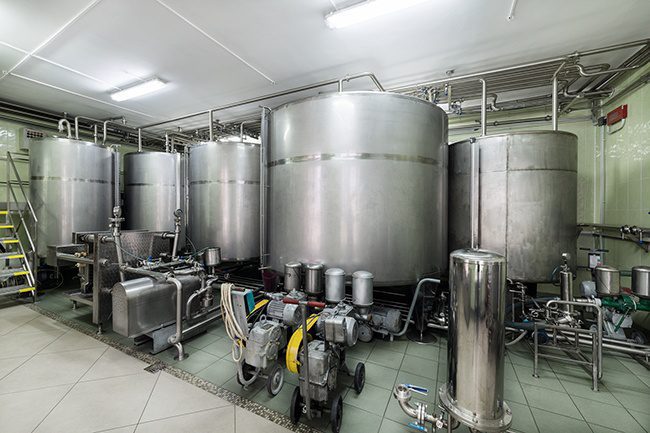
Carbon Steel – Carbon steel has higher carbon content than stainless steel. Because of the larger amounts of carbon, tanks created with this material offer better heat distribution. This is useful for customers who plan on heating the contents of their tank. Carbon steel is also wear resistant, which is an important quality in an industrial tank, as well as malleable. The higher carbon content makes the steel harder and stronger than other steels. Tanks made with carbon steel tend to be more affordable. A tank made with carbon steel will require less materials than a stainless steel tank, while the materials are less expensive than those used for exotic metal tanks. Carbon steel is usually preferred in situations where the tank will be stored indoors or under cover. Since carbon steel is more prone to rusting, it is best to place these tanks indoors.

Working with a custom metal fabricator to design and build a storage tank will ensure you will get the industrial tank that will fully meet your needs. Swanton Welding will work with you to choose the proper type of tank and best material to build it out of. This will guarantee a quality storage tank that will last you a long time. A tank is only as good as the welds that hold it together. Let high standards of Swanton Welding work for you. Call for a quote today. 419-826-4816.

